2024 Theme for Greek Fest: A Zest for Life
Friday, May 24: 5 p.m. - 11 p.m.
Saturday, May 25: 11 a.m. - 10 p.m.
Sunday, May 26: 11 a.m. - 8 p.m.
Tickets: $10. Free for children under 12
Parking Available at 5700 Wisner Blvd.
gfno.com, opa@gfno.com, and @NOLAGreekFest on social media
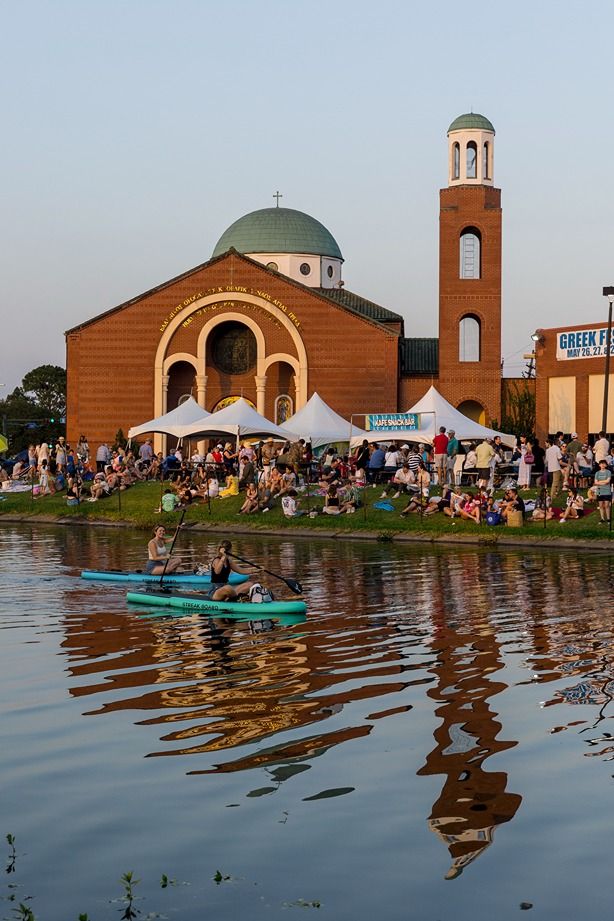
OPA!
As a native New Orleanian and a proud member of the Greek American community, the New Orleans Greek Fest holds a special place in my heart. For me, it's more than just a weekend event—it's a celebration of heritage, tradition, and the vibrant tapestry of Greek culture that has shaped my upbringing here in NOLA.
Growing up not only a Greek American but also a first-generation Greek New Orleanian, the Greek Fest is an annual highlight that was, and still is, an integral part of community life where families share cherished Mediterranean recipes and everyone gathers at the Hellenic Cultural Center to cook and bake together. From spanakopita and the pastitsio to the decadent pastries like baklava, everything is made with love and shared with the importance of philoxenia, the Greek concept of hospitality and generosity towards guests.
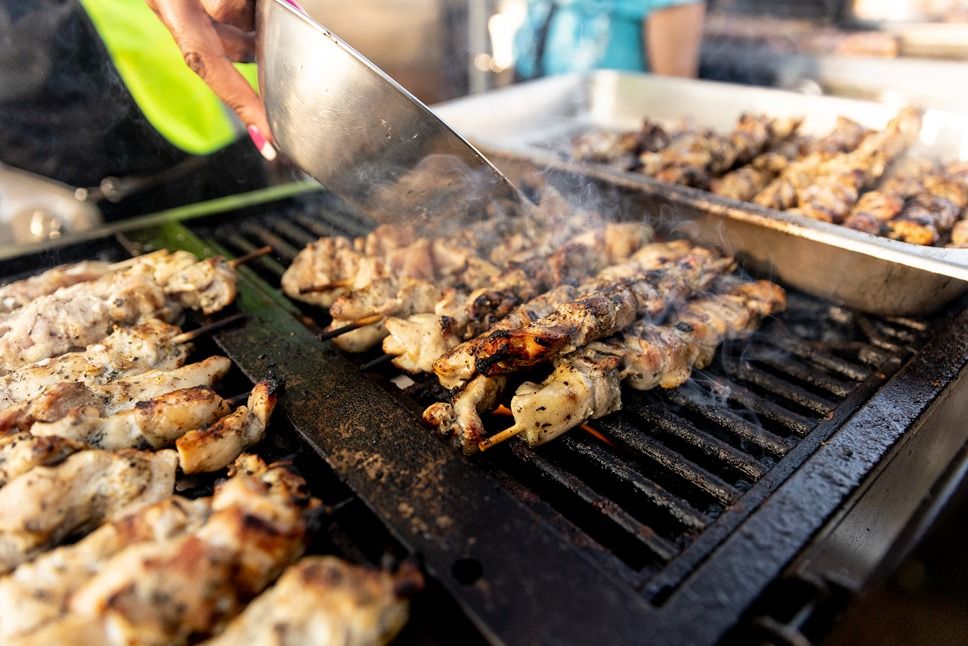
But the roots of Greek Fest run deeper than my own childhood memories. The festival began in the 1970s as a small event for Holy Trinity Cathedral, the oldest Greek orthodox church in all of the Americas, which was founded in the 1800s and, at that time, located on North Dorgenois. Over the years, it has grown into one of the premier festivals in this city, held at the current church site on Allen Toussaint Boulevard and Bayou St. John over Memorial Day weekend.
If you've never experienced Greek Fest, expect a feast for the senses—a kaleidoscope of sights, sounds, and emotions that leave an indelible mark. I can still vividly recall the sight of the Hellenic dancers twirling in colorful traditional costumes, their movements synchronized to the rhythmic beat of the music, and the joyous shouts of "Opa!" which is the ultimate expression of joy. When I was a teenager, I got to join the dance group, known affectionately as "the pride and joy" of the community since it was a way for the younger generation to contribute to the festival as everyone else was volunteering at one of the booths.
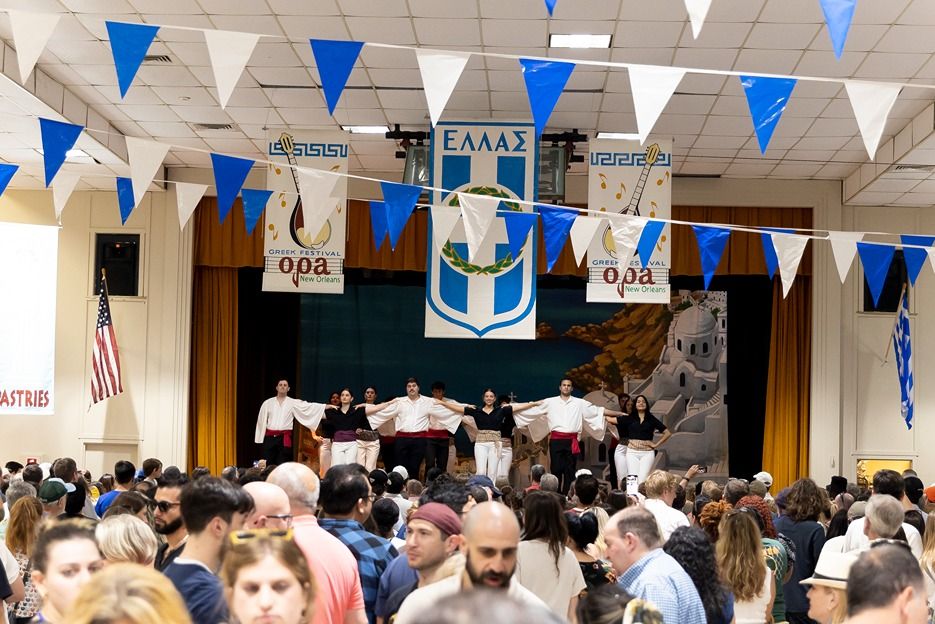
As I grew older, I came to understand the significance of the traditions and customs that were being celebrated. I learned about the origins of the Greek dance, passed down as a way of preserving cultural heritage.
For generations, Greek song and dance has served as a cherished tradition, passed down from ancestors and taught at home and in the community as a way to connect and honor a Greek way of life here. Each dance tells a story: a story of love, joy, resilience, and triumph that transcends language barriers and speaks to the universal human experience.
Among these dances, the Zeibekiko holds a special place, embodying the soul of Greek music and dance. It is known for its slow, improvisational style, which allows dancers to express their emotions and tell their own stories through movement. In New Orleans, the Zeibekiko finds a natural home, weaving its soulful melodies into the fabric of this city's musical tapestry.
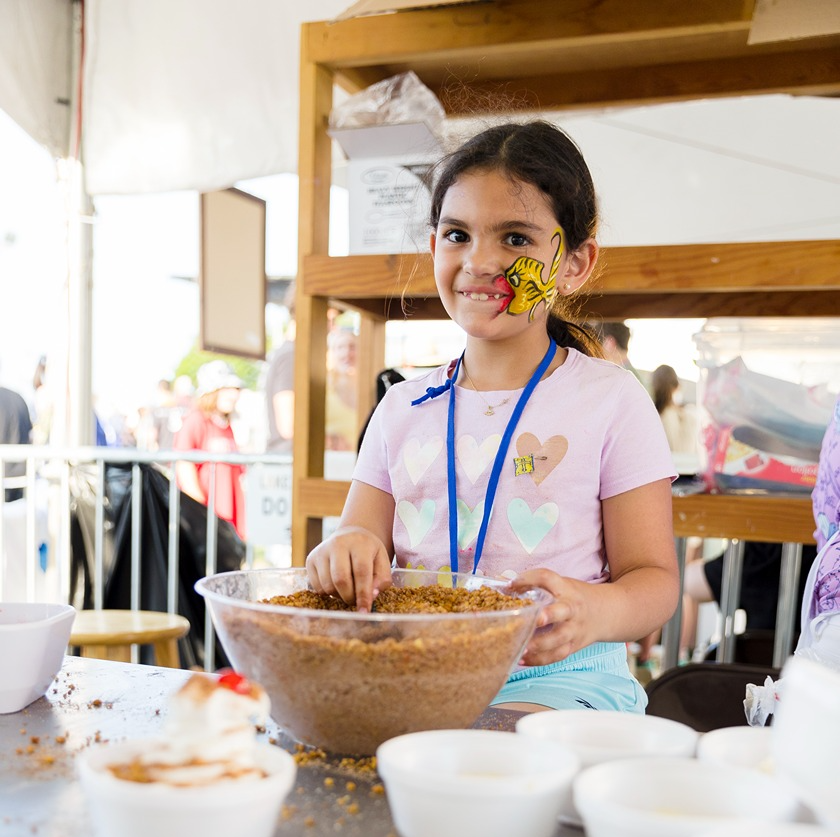
But beyond the food and dance, one of the most cherished aspects of the Greek Fest is the sense of community that pervades the event. Whether you are a longtime member of the Greek American community or a newcomer to the festivities, you are welcomed with open arms and treated like family. It is a place where friendships are forged, shared memories are made, and bonds strengthened across generations.
For me, the Greek Fest was not just another festival. It was a journey of self-discovery and a reaffirmation of my Greek identity. It was a reminder of the sacrifices and struggles of our ancestors, who immigrated to this country in search of a better life, as well as a celebration of the rich cultural heritage they passed down.
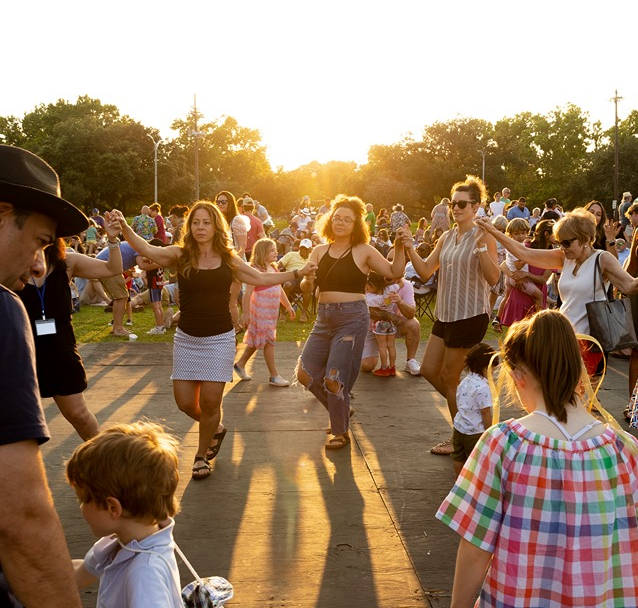
As I reminisce about my childhood experiences at the Greek Fest, I recall the excitement that filled the air as my family and I made our way to the festival grounds to volunteer and enjoy the festivities. It was a time of anticipation and joy, a chance to immerse ourselves in the sights, sounds, and flavors of Greece without ever leaving our beloved city of New Orleans.
What I treasure most about the Greek Fest is the sense of belonging it instilled in me. As a Greek American growing up in New Orleans, it wasn't always easy to balance the traditions of my heritage, such as dressing up in traditional costumes with the cool culture of my hometown. But at the Greek Fest, I found a community that embraced both, a place where I could be proud of my roots while also celebrating the unique blend of cultures that makes New Orleans so special.
The festival may only last for a few days each year, but its impact lingers long after the tents have been taken down and the music has faded away. It's a testament to the enduring spirit of the Greek American community and a reminder of the power of culture to unite and inspire us all. Opa!
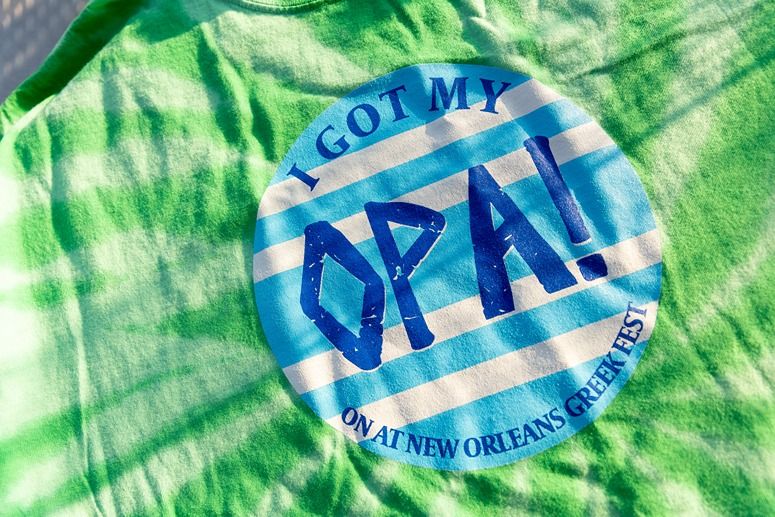
The Greek Festival Run/Walk Race
Saturday, May 25: 8:30 a.m.
Exclusive Early Festival Access: 10 a.m.-11 a.m.
Hellenic Dancers
Friday, May 24: 6 p.m. and 9 p.m.
Saturday, May 25: 1:30 p.m., 4:30 p.m., and 7:30 p.m.
Sunday, May 26: 1:30 p.m. and 6 p.m.

